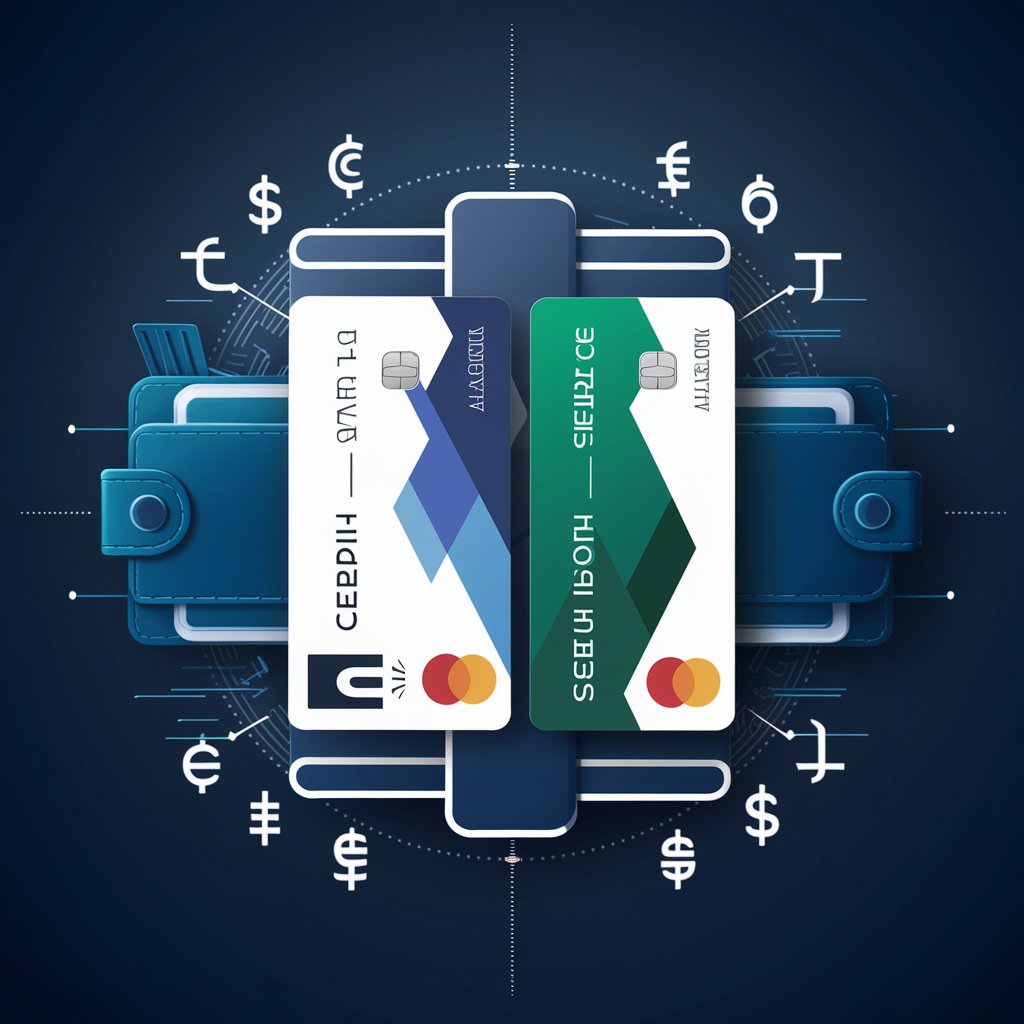 Outline:
Outline:Introduction
Understanding Credit and Debit
What are Credit and Debit?
Key Differences Between Credit and Debit
Benefits of Credit Cards
Convenience and Security
Building Credit History
Rewards and Cashback
Drawbacks of Credit Cards
Interest Rates and Fees
Overspending Risk
Benefits of Debit Cards
Spending Control
No Debt Accumulation
Widespread Acceptance
Drawbacks of Debit Cards
Limited Consumer Protections
Fraud and Security Concerns
Choosing Between Credit and Debit
Factors to Consider
Personal Financial Goals
Managing Credit Responsibly
Understanding Credit Scores
Tips for Responsible Credit Card Use
Using Debit Cards Wisely
Budgeting and Monitoring Spending
Protecting Your Debit Card Information
Comparing Costs and Fees
Cost Differences Between Credit and Debit
Impact on Credit Score
How Credit and Debit Cards Affect Credit Scores
Future Trends in Credit and Debit
Technological Advancements
Changing Consumer Preferences
Conclusion
FAQs about Credit and Debit
What is the main difference between credit and debit cards?
How do credit cards help build credit?
Are debit cards safer than credit cards?
Can using credit cards improve my credit score?
What should I consider when choosing between a credit and debit card?
Write-up: Credit and Debit: Understanding the Choices
Introduction
In today’s financial landscape, credit and debit cards play pivotal roles in how individuals manage their money. Understanding the nuances between these two types of payment methods is crucial for making informed financial decisions.
Understanding Credit and Debit
What are Credit and Debit?
Credit cards and debit cards are both plastic cards used for making payments electronically. However, they operate differently in terms of where the money comes from.
Key Differences Between Credit and Debit
Credit cards allow users to borrow money from the card issuer up to a certain limit, whereas debit cards deduct funds directly from the user’s bank account.
Benefits of Credit Cards
Credit cards offer several advantages that appeal to consumers:
Convenience and Security
Credit cards provide a convenient way to pay for goods and services online and in-store. They also offer robust security features such as fraud protection and zero liability for unauthorized transactions.
Building Credit History
Using a credit card responsibly can help individuals build a positive credit history, which is essential for future borrowing opportunities like loans and mortgages.

Rewards and Cashback
Many credit cards offer rewards programs that allow users to earn points, miles, or cashback on their purchases, providing additional financial benefits.
Drawbacks of Credit Cards
Despite their benefits, credit cards come with potential drawbacks:
Interest Rates and Fees
Credit cards may charge high-interest rates on unpaid balances and various fees such as annual fees, late payment fees, and foreign transaction fees.
Overspending Risk
The ease of credit card spending can lead to overspending and accumulating debt if users do not manage their finances responsibly.
Benefits of Debit Cards
Debit cards also offer compelling advantages:
Spending Control
Debit cards limit spending to the available balance in the linked bank account, helping users manage their finances and avoid debt.
No Debt Accumulation
Since debit card transactions deduct funds directly from the user’s bank account, there’s no risk of accumulating debt or paying interest.
Widespread Acceptance
Debit cards are widely accepted by merchants worldwide, making them a convenient payment option for everyday transactions.
Drawbacks of Debit Cards
However, debit cards have their own set of limitations:
Limited Consumer Protections
Unlike credit cards, debit cards may offer limited protections against unauthorized transactions or billing disputes.
Fraud and Security Concerns
Debit cards are susceptible to fraud, and unauthorized transactions can potentially drain the linked bank account until resolved.
Choosing Between Credit and Debit
When deciding between credit and debit cards, several factors should be considered:
Factors to Consider
Personal financial habits, spending needs, credit goals, and risk tolerance all play roles in determining which card type best suits an individual’s circumstances.
Managing Credit Responsibly
For those opting for credit cards, responsible management is crucial:
Understanding Credit Scores
Credit scores reflect a consumer’s creditworthiness and are influenced by factors like payment history, credit utilization, and length of credit history.
Tips for Responsible Credit Card Use
Paying bills on time, keeping balances low, and monitoring credit reports regularly are essential practices for maintaining a healthy credit score.
Using Debit Cards Wisely
Managing a debit card effectively involves:
Budgeting and Monitoring Spending
Creating and sticking to a budget helps users avoid overspending and ensures funds are available for necessary expenses.
Protecting Your Debit Card Information
Safeguarding personal and card information from theft or fraud is critical to prevent unauthorized access to bank accounts.
Comparing Costs and Fees
Understanding the financial implications of each card type is essential:
Cost Differences Between Credit and Debit
Credit cards typically involve interest charges and fees, whereas debit cards may have minimal or no fees depending on the bank’s policies.
Impact on Credit Score
Credit and debit cards impact credit scores differently:
How Credit and Debit Cards Affect Credit Scores
Using credit cards responsibly can improve credit scores, while debit card usage does not impact credit scores since it doesn’t involve borrowing money.
Future Trends in Credit and Debit
The landscape of credit and debit cards continues to evolve:
Technological Advancements
Advancements in payment technologies, such as contactless payments and mobile wallets, are shaping the future of card transactions.
Changing Consumer Preferences
Consumer preferences for digital banking solutions and enhanced security features influence the development of new card offerings.
Conclusion
In conclusion, credit and debit cards offer distinct advantages and considerations depending on individual financial needs and habits. Choosing the right card type involves weighing benefits, costs, and long-term financial goals.
FAQs about Credit and Debit
What is the main difference between credit and debit cards?
Credit cards allow borrowing from the issuer, while debit cards deduct funds directly from the bank account.
How do credit cards help build credit?
Responsible credit card use, such as making timely payments, contributes positively to one’s credit score.
Are debit cards safer than credit cards?
Debit cards offer limited fraud protections compared to credit cards, which may offer more robust security features.
Can using credit cards improve my credit score?
Yes, using credit cards responsibly can demonstrate creditworthiness and improve credit scores over time.
What should I consider when choosing between a credit and debit card?
Consider your spending habits, financial goals, and the level of financial responsibility required for each card type.
I hope you found this article insightful and helpful in navigating the choices between credit and debit cards.
I hope you are having a wonderful day! I have a small favor to ask. I’m aiming to rank in the top 10 on the ChatGPT store, and I can’t do it without your amazing support. Could you please use my GPT [https://bit.ly/GPT_Store] and leave some feedback? Your positive reviews would mean the world to me and help me achieve my goal. Additionally, please bookmark my GPT for easy access in the future.
Thank you so much for your kindness and support!
Warm regards



